| "The commanders on the ground are making specific plans for how they would maneuver in their sector of the battlefield." -National security correspondent David Martin reports the U.S. has intelligence that Russian troops have received orders to proceed with an invasion of Ukraine. Welcome to the "Face the Nation" Five at Five newsletter. Scroll down for your five takeaways from today's broadcast of "Face the Nation with Margaret Brennan" on CBS. Did someone forward you this? Sign-up at cbsnews.com/email. 1. Sec. Blinken: Russia will be "moving forward" with invasion of Ukraine 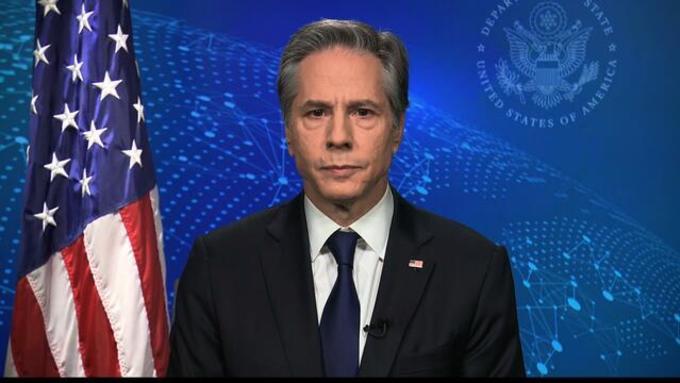 Secretary of State Antony Blinken followed up President Joe Biden's declaration that America "has reason to believe" Moscow will invade its neighbor Ukraine. What we asked: President Biden says Vladimir Putin has made up his mind to invade, but we spoke with Russia's ambassador earlier this morning, and he insists there's no invasion, no plan to invade, and it only has troops on its own soil. Do you have reason to believe Vladimir Putin is changing his mind? What Blinken said: "As President Biden said the other night, everything we're seeing tells us that the decision we believe President Putin has made to-- to invade is moving forward. We've seen that with provocations created by the Russians or separatist forces over the weekend, false flag operations. Now the news just this morning that the quote unquote exercises Russia was engaged in Belarus with 30,000 Russian forces that were supposed to end this weekend, will now continue because of tensions in eastern Ukraine -- tensions created by Russia and the separatist forces it backs there." Why it matters: Russia has massed roughly 190,000 troops, warplanes and equipment on Ukraine's three sides, escalating tensions with the neighboring country. In anticipation of an attack, the U.S. and other allies, most recently Germany and Austria, have urged their citizens to leave the country. 2. Russian Amb. to the U.S.: "There is no invasion and there is no such plans" to invade Ukraine. Two hours later, CBS News national security correspondent David Martin reported that the U.S. has intelligence indicating that Russian troops have actually received orders now to proceed with the invasion 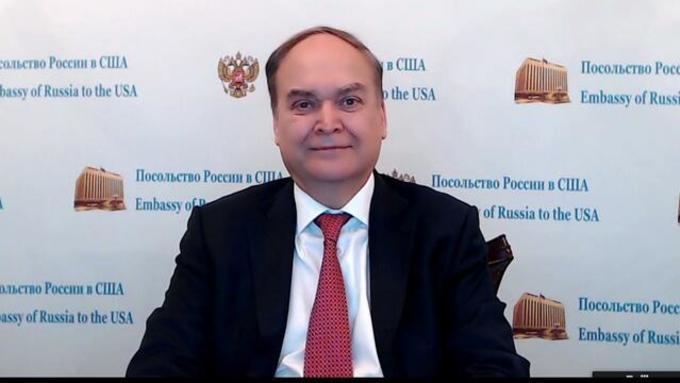 Russian Ambassador to the United States Anatoly Antonov denied Sunday that the Kremlin is preparing for an invasion of Ukraine, despite the troop build up and U.S. intelligence that Russian commanders have received orders to proceed. What we asked: President Biden says that President Putin has decided to invade Ukraine. Is he correct? What Antonov said: "There is no invasion and there is no such plans. It was fixed in Russian documents that we conveyed to our American friends in the State Department. Russia has publicly decided-- declared its readiness to continue the diplomatic efforts to resolve all outstanding issues. By the way, I would like to say a few things. Each state has a right to protect its boundary and border. The Russian Federation, the United States, as well as any state, has such a right. It's no exception. Russian troops are on sovereign Russian territory. We don't threaten anyone. Why do you-- why do other countries try to impose their decisions on us? Where can we deploy our troops and how many? I would like to emphasize once again that this is our own territory. Can you even imagine that Russia will impose on the United States not to deploy your forces in Florida or in San Francisco?" Why it matters: The ambassador's claims that Russia does not intend to invade Ukraine come as Putin has massed roughly 190,000 soldiers, warplanes and equipment on his neighbor's three sides. 3. Ukrainian Amb. to the U.S.: Whatever "crimes" Russia commits to potentially harm opponents "will not help their cause" 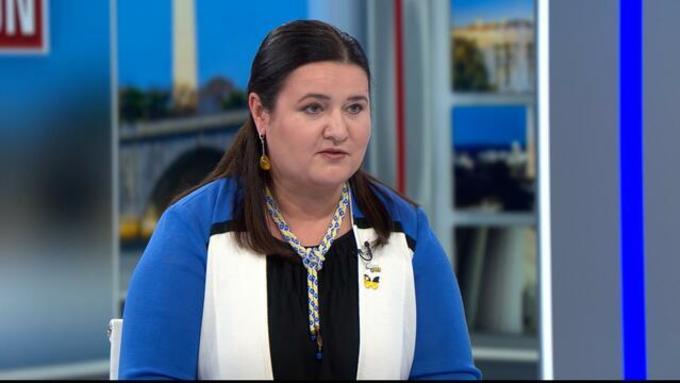 Ukrainian Ambassador to the U.S. Oksana Markarova reacted Sunday to reports that U.S. intelligence has evidence that Russia is creating a hit list of Ukrainians, Russians, other activists and political leaders. What we asked: There have been a number of reports in recent days that U.S. intelligence has evidence that Russia is creating a hit list of Ukrainians, of Russians, of other activists and political leaders living outside the country. Are you concerned about your own safety? What Markarova said: "Difficult question, but I think we all are concerned about Ukraine and there are so many Ukrainians that are ready to resist and fight for Ukraine in Ukraine, but also outside of Ukraine. We have great community here in the United States as well so that, you know, whatever they will, in whatever crimes they're willing to commit in order to kill some of us, it will not stop others and it will not help their cause." Why it matters: Tensions in the Ukraine-Russia crisis are at their highest point. Though U.S. officials hope a path to diplomacy still exists before bloodshed, American intelligence suggests that Putin has already decided he will invade Ukraine. 4. NATO Sec. Gen.: Increased European security is "a new normal" 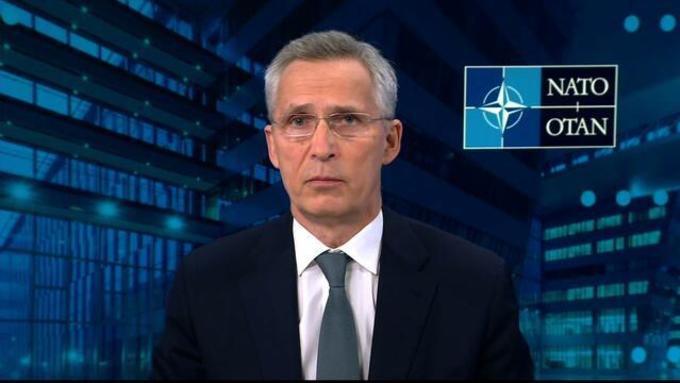 NATO Secretary General Jens Stoltenberg discussed the possibility of a Russian invasion of Ukraine, after the defense minister of Belarus announced Russia will be extending military drills taking place in the country near Ukraine's northern borders. What we asked: Now that Russia and Belarus have said those troops are staying in the north of Ukraine, does that mean NATO has to either, you know, increase more advanced weaponry in the region or move in more troops? Or is that still yet to be decided? What Stoltenberg said: "We have reinforced and implemented the biggest reinforcement of collective defense since the end of the Cold War, with battlegroups in the Baltic region in-- in Poland, with increased defense spending every year since 2014 and with a higher readiness of the NATO forces. So we have implemented significant reinforcements of-- of NATO already. And then over the last weeks or months, we have augmented-- added even more forces and troops to our presence in the east. I think what we are now faced with is a new normal in European security. We see Russia being willing to contest fundamental values for our security by the use of force and also by the threat of use of force. And-- and therefore I-- we have started all of the work on or more longer-term adjustment of NATO's posture, NATO's presence along the eastern flank." Why it matters: The Russian troops stationed along Ukraine's border with Belarus and Russia constitute the largest military build-up in Europe since World War II. 5. Krebs: Financial services industry "at the top" of Russian retaliation targets 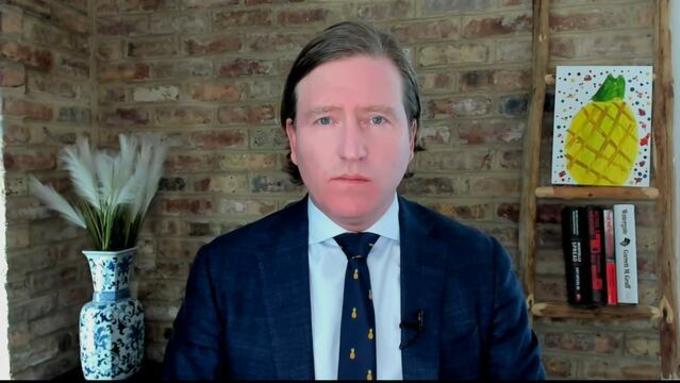 CBS News cybersecurity expert and analyst Chris Krebs says Russia may launch retaliatory cyberattacks targeting banks and other financial institutions if the U.S. issues sanctions. What we asked: CBS reported that the Treasury Department actually sat down with some corporate leaders, including from JPMorgan, from Citigroup, some of the country's largest financial institutions. What do you see as the most immediate threat here in the U.S. from a cyber-attack that happens, you know, in a country 5,000 miles away? What Krebs said: "Well, the U.S. government has been meeting with critical infrastructure partners now for many months, so it hasn't just been the last couple of weeks, as I understand it's going back as far as November or even earlier specific to the escalation of tensions here. What they've done is look back over the last several years of where Russian security services and cyber actors have targeted U.S. infrastructure, and that's energy, that's transportation, logistics and, of course, finance. And they're also combining it through a series of war games and scenario playing-- scenarios playing out how the Russians may respond to any sanctions we could impose. And that's, I think, where we get to the financial services industry. And so that's probably at the top of the list as you consider some of the sanctions we've talked about. And that would be probably the-- the counter move by the Kremlin and some of those security services." Why it matters: If an invasion of Ukraine were to happen, U.S. officials at the highest levels have repeatedly threatened economic sanctions against Russia. How Putin would respond to sanctions against his country is an open question. Margaret Brennan: Squeezing the oligarchs may be the West's sanction strategy  This week, Margaret Brennan joined "The Late Show with Stephen Colbert" to break down the Russia-Ukraine crisis. She explained what the West's sanction strategy might be, which could include targeting individuals close to Putin. |
Post a Comment
0Comments